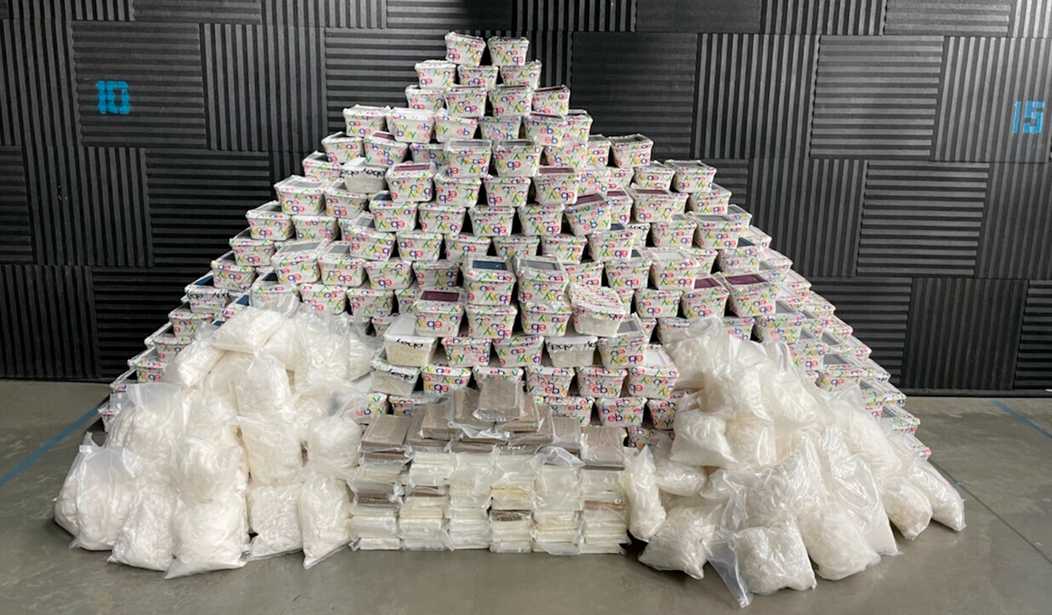Senator Tim Scott is not ordinarily thought of as a GOP bomb-thrower. But during his announcement for the presidency, he sounded like a firebreather when it came to dealing with Mexico and the drug cartels.
“When I am president, the drug cartels using Chinese labs and Mexican factories to kill Americans will cease to exist,” Scott vowed. “I will freeze their assets, I will build the wall, and I will allow the world’s greatest military to fight these terrorists. Because that’s exactly what they are.”
That almost sounds like a declaration of war. But Scott isn’t alone among declared and undeclared Republican candidates for president in openly supporting the idea of sending American military forces into Mexico to fight the cartels and stop the illegal importation of one of the deadliest drugs known to man that killed more than 100,000 Americans last year due to overdoses.
“When I am president, it will be the policy of the United States to take down the cartels, just as we took down ISIS and the ISIS caliphate,” Donald Trump said in January. “[I will] order the Department of Defense to make appropriate use of special forces, cyber warfare, and other overt and covert actions to inflict maximum damage on cartel leadership, infrastructure and operations.”
Florida Governor Ron DeSantis believes that stopping the cartels is a “day one” issue and “you gotta really go in with all guns blazing and using all the leverage that you have to be able to” stop the cartels.
Mike Pence said “national security begins with border security. We need leadership that will secure the southern border of the United States of America as a priority. … We have to have leadership willing to use American strength.”
Fentanyl is a unique drug threat to the United States largely because it’s ridiculously powerful. The synthetic opioid is up to 50 times stronger than heroin and 100 times stronger than morphine. But it’s not just its power that makes taking it a life-and-death gamble. Fentanyl is manufactured in crude labs by people who don’t care if their customers live or die.
But before we go into Mexico “with guns blazing,” we should be mindful of the local, regional, and international repercussions of using American special forces to fight the cartels. And we should look long and hard at the probability that any military actions won’t significantly affect the supply side of the problem.
Related: Drugs and Cons: Fentanyl and Criminals Pour Across U.S.
All the proof we need is in our failed military efforts in Colombia and Afghanistan. “Plan Colombia” showed some initial success in helping the Colombian military fight the FARC rebels. But as an anti-narcotics effort, it was a flat failure.
By 2006, “coca cultivation and cocaine production levels (had) increased by about 15 and 4 percent, respectively.” In 2019, there were more hectares cultivated with coca leaf in Colombia (212,000) than two decades earlier (160,000).
The so-called FARC “dissidents,” thousands of fighters who did not demobilize in 2016, still control large swathes of the cocaine business. They wage constant combat over production areas and export routes against other guerrilla groups and criminal organizations, including several with links to Mexican drug cartels.
Not surprisingly, the fight against heroin production in Afghanistan was an even bigger failure, considering the military fiasco that ended up with the Taliban in power.
The U.S. spent about $9 billion to tackle Afghanistan’s opium and heroin production, only for the effort to be “perhaps the most feckless” of “all the failures in Afghanistan,” according to The Washington Post‘s analysis of confidential government interviews and documents. By 2018, Afghan farmers were growing poppies on four times as much land as they were in 2002. Operation Iron Tempest, meant to cripple Afghanistan’s opium production labs, folded within a year. “Many of the suspected labs turned out to be empty, mud-walled compounds,” noted the Post.
There is a role for the military in fighting the cartels. But the risks of going to war against the gangsters are huge. The Mexican government would never invite the American military into their country, and any invasion would be opposed by the Mexican armed forces. And they’d have plenty of help. Homegrown terrorists on both sides of the border, radicalized by collateral damage to civilian populations, would make life a living hell along the border.
Joint operations with the Mexican military should be encouraged and even demanded by the next president. But sending an invasion force across the border is likely to make the situation worse and end up doing more harm than good.
